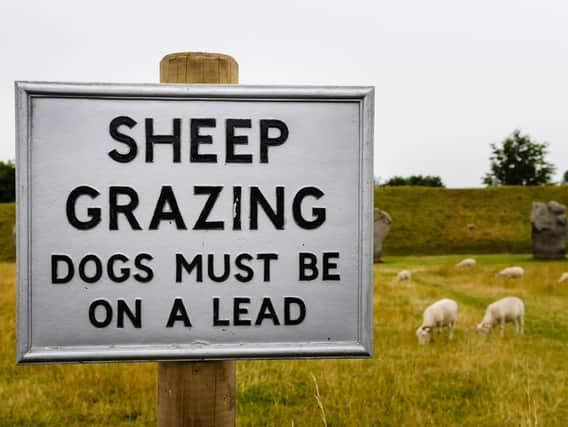Yorkshire farmer reveals the true cost of rural crime after being targeted by sheep rustlers


But while the decrease is welcome it still meant an estimated bill of £7.8m for farmers in the North East region – the second worst affected region for cost behind the Midlands.
And while a combination of Covid restrictions, increased security on farms and rural policing has helped reduce thefts, organised criminals were still targeting farmyards over the pandemic for high-value farming Global Positioning Systems, agricultural vehicles and tools.
Advertisement
Hide AdAdvertisement
Hide AdDavid Smith, NFU Mutual regional manager for the North East, said: “Coronavirus restrictions, beefed-up security on farms and more effective rural policing provided a welcome fall in rural thefts last year, but while lockdown may have locked some criminals out of the countryside – rural crime hasn’t gone away.
“Thieves are now returning armed with new tactics and targets. As the economic impact of the pandemic bites, we are very concerned that rural theft may escalate significantly.”
Emptier roads as a result of lockdown may have made it harder for thieves to make off with vehicles full of stolen animals as the figures show livestock theft fell sharply by 28.3 per cent to a cost of £220,000 in the region.
But farmers have still been affected with Joanna Andrews who farms more than 500 ewes across her 200-acre farm in Husthwaite, losing heavily pregnant sheep to rustlers.
Advertisement
Hide AdAdvertisement
Hide AdIn January, Joanna said she was preparing to lamb her ewes when three were stolen and several others so distressed that they miscarried their lambs.
“I’d counted the sheep the week before in preparation for lambing and when I collected them back in, I was missing three heavily pregnant ewes.
“The ewes themselves were worth over £800, but the cost to the animals’ health, breeding programmes and the farmer runs further.
“Following the theft, I discovered that several ewes in the same field had miscarried their unborn lambs, having a huge knock-on effect on the year’s season.
Advertisement
Hide AdAdvertisement
Hide Ad“It’s likely that a dog was used as part of the theft, and that the stress of an unfamiliar dog chasing the heavily pregnant sheep caused them to lose their lambs.
“Having the ewes stolen was already devastating, but impact and suffering across the rest of the flock made the incident even more distressing.”
“While I’ve not knowingly had sheep stolen before, it’s very hard to be sure when you have so many to keep track of. I think thieves take advantage of that challenge to keep crimes covert.
“Every farm animal requires an investment of time, care, money and effort and livestock theft threatens a part of your livelihood which you’ve worked incredibly hard to raise.”
Advertisement
Hide AdAdvertisement
Hide AdMr Smith said NFU Mutual was investing more than £430,000 in carefully targeted rural security schemes this year to help the fight against rural crime.
The extra funding will help police join forces with local farmers, set up covert operations and recover more stolen machinery from countries across Europe.
“We believe this is vital support because rural crime isn’t just about money to replace stolen tractors. It causes disruption, seriously affects farmers’ mental wellbeing and destroys the trust which enables rural communities to flourish.”
The cost of rural crime in the North East region did not fall as steeply as the UK average which was 20.3 per cent, putting the figure at £43.3m.
Advertisement
Hide AdAdvertisement
Hide AdThe UK cost of agricultural vehicle theft remained at over £9m – only a 2 per cent drop in cost from 2019.
There was a sharp increase in dog attacks on livestock with a 10.2 per cent rise in 2020 and NFU Mutual data shows the cost of attacks rose 50 per cent in the first quarter of 2021 compared to last year.
Fly-tipping also reached “epidemic proportions” as waste recycling centres had restricted access.